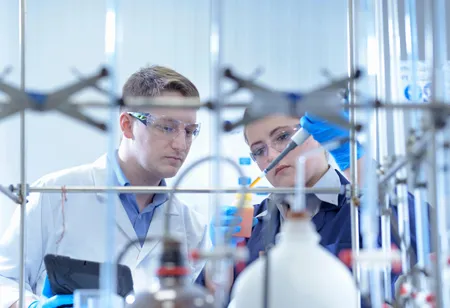The chemical industry is rapidly evolving, and technological advancements are transforming the industry.
FREMONT, CA: The chemical industry has come a long way since its inception. With the introduction of technology, the industry has been revolutionized, and various chemical technologies have been developed. These technologies have been instrumental in producing high-quality chemicals essential for various industrial applications. In this article, we will explore some of the top chemical tech trends that are transforming the industry.
1. Artificial Intelligence (AI) and Machine Learning (ML)
Artificial Intelligence (AI) and Machine Learning (ML) have been increasingly used in the chemical industry to streamline and optimize chemical processes. AI and ML can analyze data, optimize chemical reaction parameters, and predict reaction outcomes. This helps to improve the quality of chemicals produced, reduce costs, and improve efficiency. For example, AI and ML can predict the optimal conditions for producing a chemical, reducing the need for trial and error.
2. Internet of Things (IoT)
The Internet of Things (IoT) has been increasingly used in the chemical industry to monitor and control chemical processes. IoT can monitor parameters such as temperature, pressure, and humidity, ensuring that chemical processes are carried out optimally. IoT can also monitor equipment performance, identify potential problems, and schedule maintenance, reducing downtime and improving efficiency.
3. Robotics
Robotics has been increasingly used in the chemical industry to automate various processes, including mixing, packaging, and labeling. Robotics can improve efficiency, reduce errors, and improve safety. For example, robots can mix chemicals, reducing the need for human intervention and improving the accuracy of the mixing process.
4. Nanotechnology
Nanotechnology has been increasingly used in the chemical industry to develop new materials and improve existing ones. Nanotechnology can be used to manipulate and control the properties of materials at the nanoscale, leading to new applications and improved performance. For illustration, nanotechnology can be used to develop new catalysts that improve the efficiency of chemical reactions.
1. 3D printing has been increasingly used in the chemical industry to produce complex shapes and structures that are difficult to produce through traditional manufacturing methods. 3D printing can produce custom-made parts, reducing the need for inventory and improving efficiency. For example, 3D printing can produce custom-made reactors, lessening the time and cost connected with traditional manufacturing methods.
2. Renewable Energy Energy sources like solar and wind have been increasingly used in the chemical industry to reduce reliance on fossil fuels. Renewable energy sources can power chemical processes, reducing greenhouse gas emissions and improving sustainability. For example, solar energy can be used to power electrolysis, which is used to produce hydrogen, an important chemical feedstock.
In conclusion, the chemical industry is rapidly evolving, and technological advancements are transforming the industry. Adopting new technologies, from AI and ML to nanotechnology and renewable energy, is essential for the industry to stay competitive and sustainable. Chemical companies must invest in these technologies to optimize their processes, improve efficiency, and reduce costs. The chemical industry will continue to benefit from technological advancements, and it will be exciting to see what the future holds.

